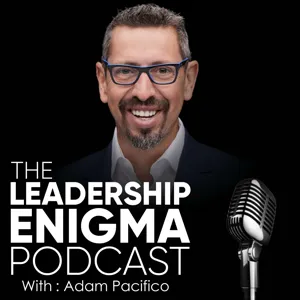The reliance on data has become a concrete must-have for any business that wants to stay competitive. And throw out any notion of getting real insights if data is siloed across disparate systems.
Further, we expect data to be a useful predictor of future decisions. However, data output can be both positive and negative, and mature leaders should be comfortable accepting both. By doing this, companies become data-driven, open to transparency, and adaptable to ever-changing customer expectations.
In this episode, Scott Vaughan joins me to break down the impact of data on marketing, CXOs, sales, and more. Scott is a B2B CMO and go-to-market leader with a belief in collaboratively building businesses, expanding markets, accelerating growth, and developing impactful teams that create value.
Highlights
01:32 – As data has become an increasingly important asset, cloud database platforms have become more valuable as they help organizations pull data together for strategic use. Over the past two years, companies have had to shift their strategies due to customer expectations shifting. So, how is data opening up new opportunities for go-to-market strategies?
03:07 – A data-driven organization is one that is accountable and makes informed decisions—everything is based on data. Nowadays, the business can solely be data. With a proactive approach, being data-driven enables businesses to identify market opportunities and ideal customer profiles to predict trends. Furthermore, the data will be used to determine what products and services that businesses will offer.
04:33 – Data can also be used for risk assessment and predictability—financial risks, security risks, and more.
05:13 – How is data impacting culture? Also, how do you create a data culture? It’s critical to emphasize data trust and transparency. It needs to be available for company-wide use to make informed decisions and ensure the organization is developing a data-driven culture.
07:13 – Data goes both ways. Businesses need to foster a culture that’s open to accept data output.
08:48 – Additionally, in making the data transparent, they need to apply the data as they present new ideas and strategies that can drastically change the business trajectory. From a culture standpoint, if the data reflects your culture values, it’s evident that your business is becoming data-driven.
11:02 – What actions are you taking as a result of the data? As part of being data-driven, businesses need to be actionable and think forward on how they’re going to use the data.
Data can go both ways, right? It’s going to expose some things, and you have to be comfortable with the uncomfortable; and truly use data, not for credit, or to prove something right
12:16 – Data is resetting expectations vs. realities. How are you going to use the data? How are you going to protect it? Also, how will you build brand trust with it? If you’re not actively using the data, it loses its value.
15:04 – For example, Scott shares about a fashion company he reviewed. It uses scanning technology to assist customers with sizing. There’s also a variety of retailers and manufacturers in its system, which requires significant inventory management. When inconsistencies arise, data becomes critically valuable as it enables the business to identify where customers need more support. Data attributes measure to guide businesses through changes.
18:10 – Data is a new way to engage with customers. It opens doors for customers to provide feedback that drives change. It even enables the personalization that customers are wanting nowadays.
20:51 – Citizen data scientists are filling the gap between the technical side of data and business decision-makers. They aim to make sense of the data to drive the culture.
23:09 – By leveraging AI, businesses can further accelerate data and make it actionable. It can also help accelerate data trust. The culture needs to trust the data so the customers can trust the service and products they’re purchasing, thus building customer loyalty.
23:52 – During a recent Prove It discussion, Building Trust with Customer Data, the panel had discussed the spherical look of data—it’s not just a flat plane or a 360 view. Businesses need to look at data from all angles to fully surface insights.
24:18 – If you want to be a data-driven company, the data strategy and data culture must be embedded everywhere and through every action.






